Portugal
You are here: Home > Portugal
Portugal is a timeless country of charming medieval towns, ancient vineyards and secluded beaches.
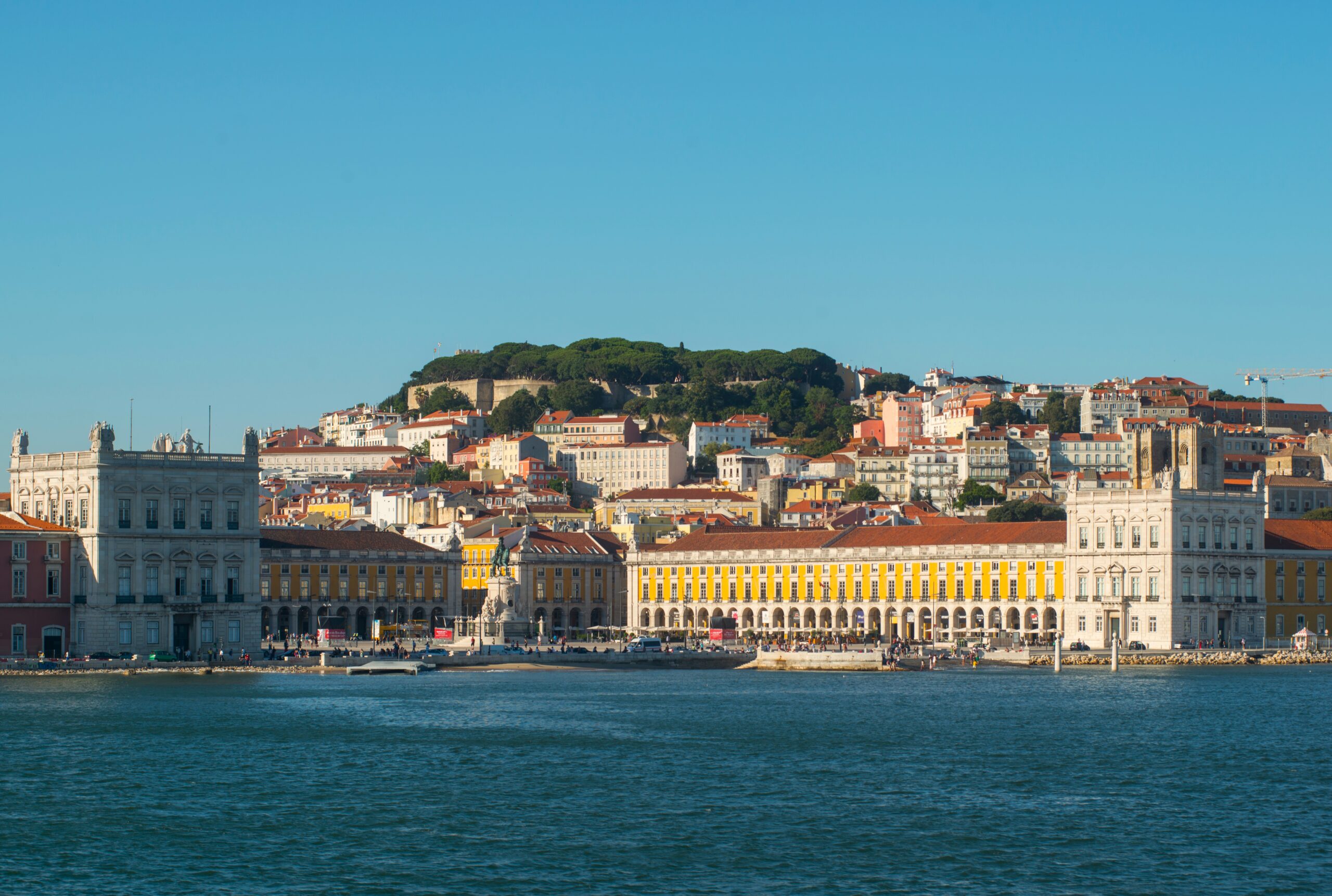
As one of Europe’s oldest countries, Portugal has stood guard over the western fringes of continental Europe for over three thousand years. It’s dynamic capital Lisbon is a fascinating mix of old and new: from the jumbled medieval alleyways of Alfama and the ornate 16th century Manueline monuments in Belem, to the grandiose Praca do Comercio, the Rua Augusta Triumphal Arch and the impressive Ponte 25 de Abril suspension bridge.
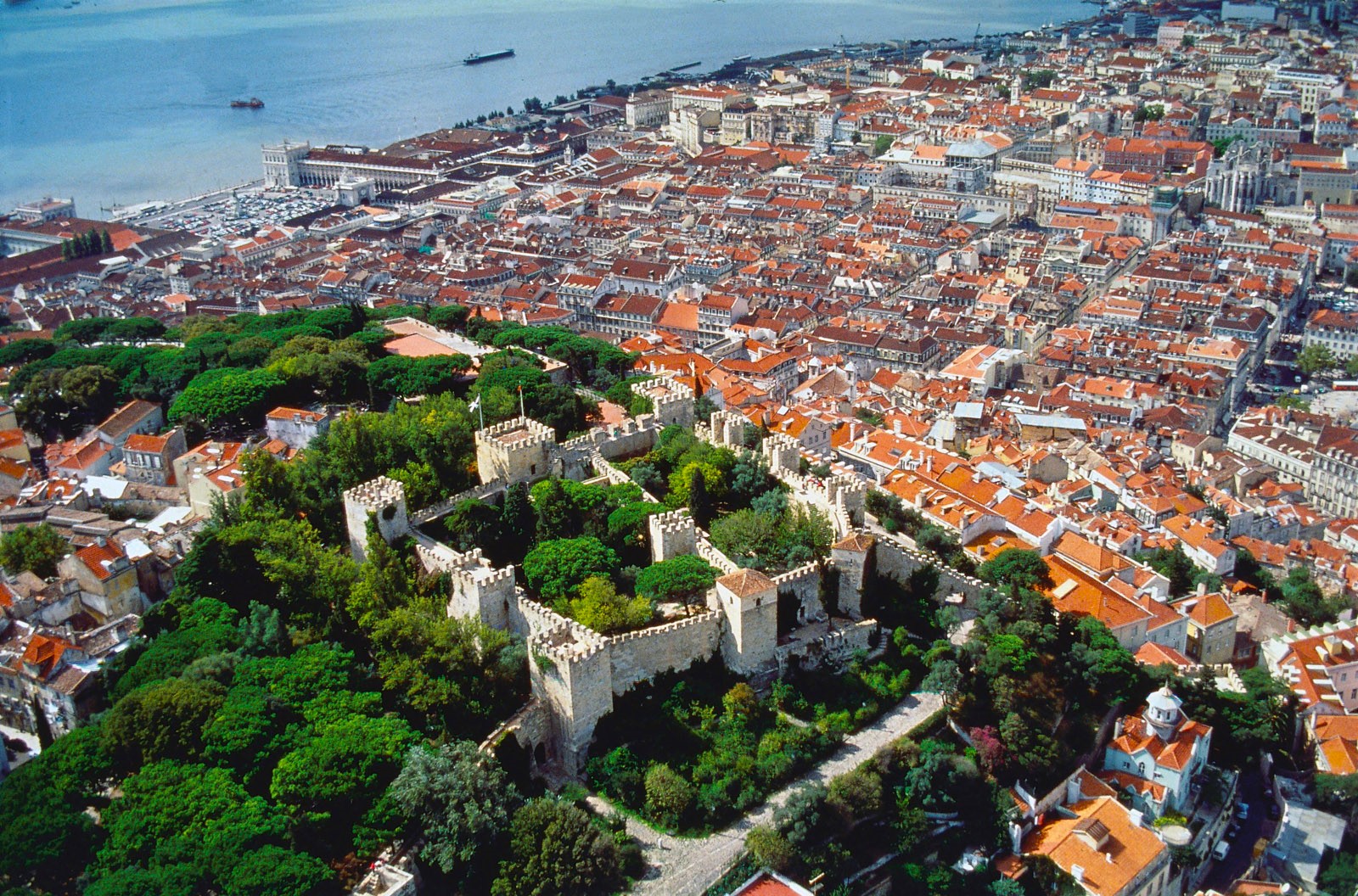
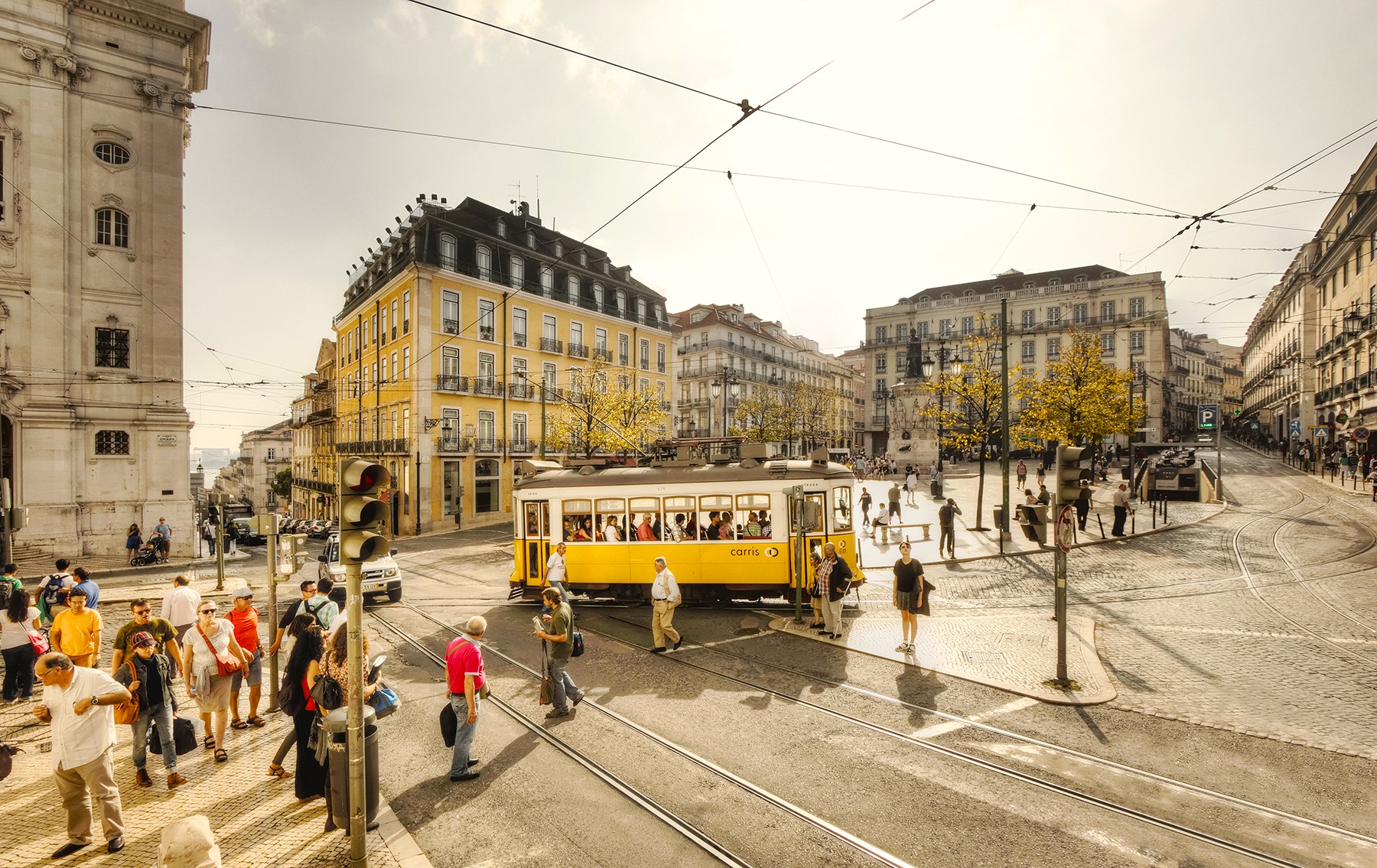
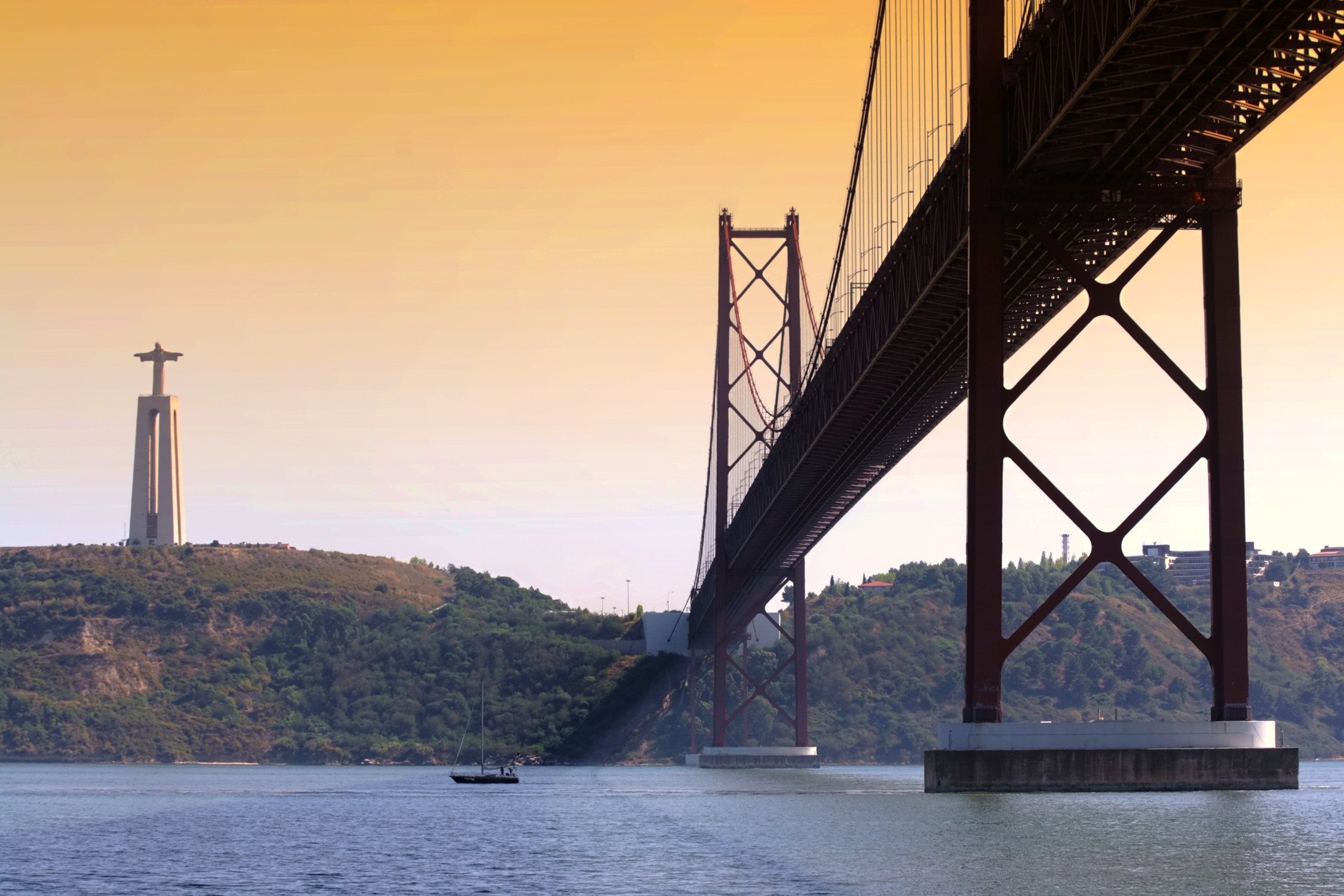
History comes alive in the ancient northern cities of Guimaraes and Braga, whilst the regional capital Porto offers visitors an irresistible mix of 18th century elegance and medieval chaos. Twin city Vila Nova de Gaia is famous for its port houses which line the southern bank of the grand Douro River, and the iconic Ponte Luiz I bridge connects these two great cities.
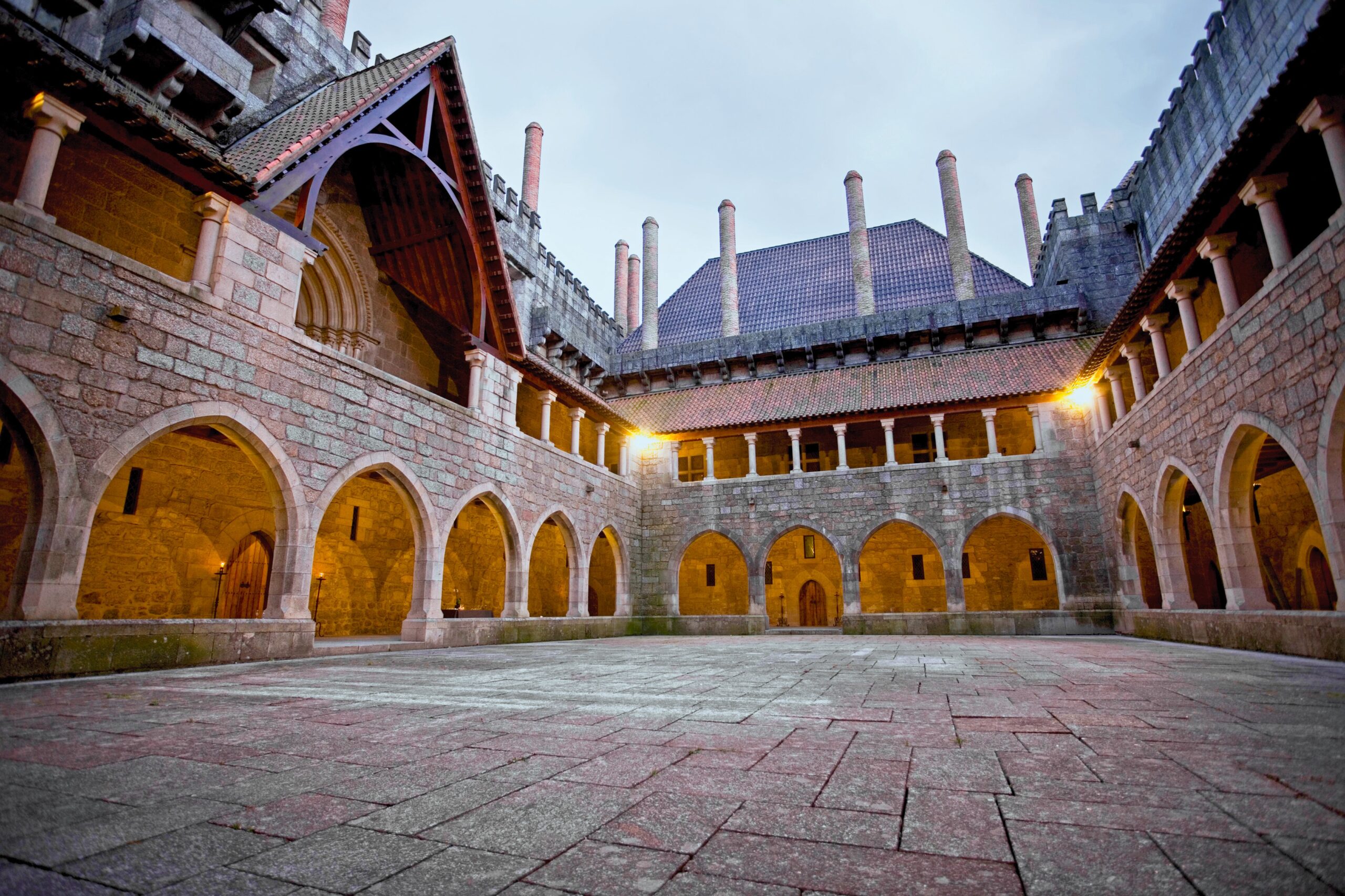
Central Portugal begins where Porto ends. Its natural landscapes are incredibly diverse – to the east, the Serra da Estrela mountains are only just being discovered by European hikers, whilst in the west, the beaches of Figueira da Foz and Nazare attract the great and the good of the surfing world with their record-breaking winter waves. The art nouveau architecture and colourful canal boats of Aveiro are famous across Portugal, and the nearby university city of Coimbra and the Templar city of Tomar are home to many of the country’s best-preserved architectural treasures.
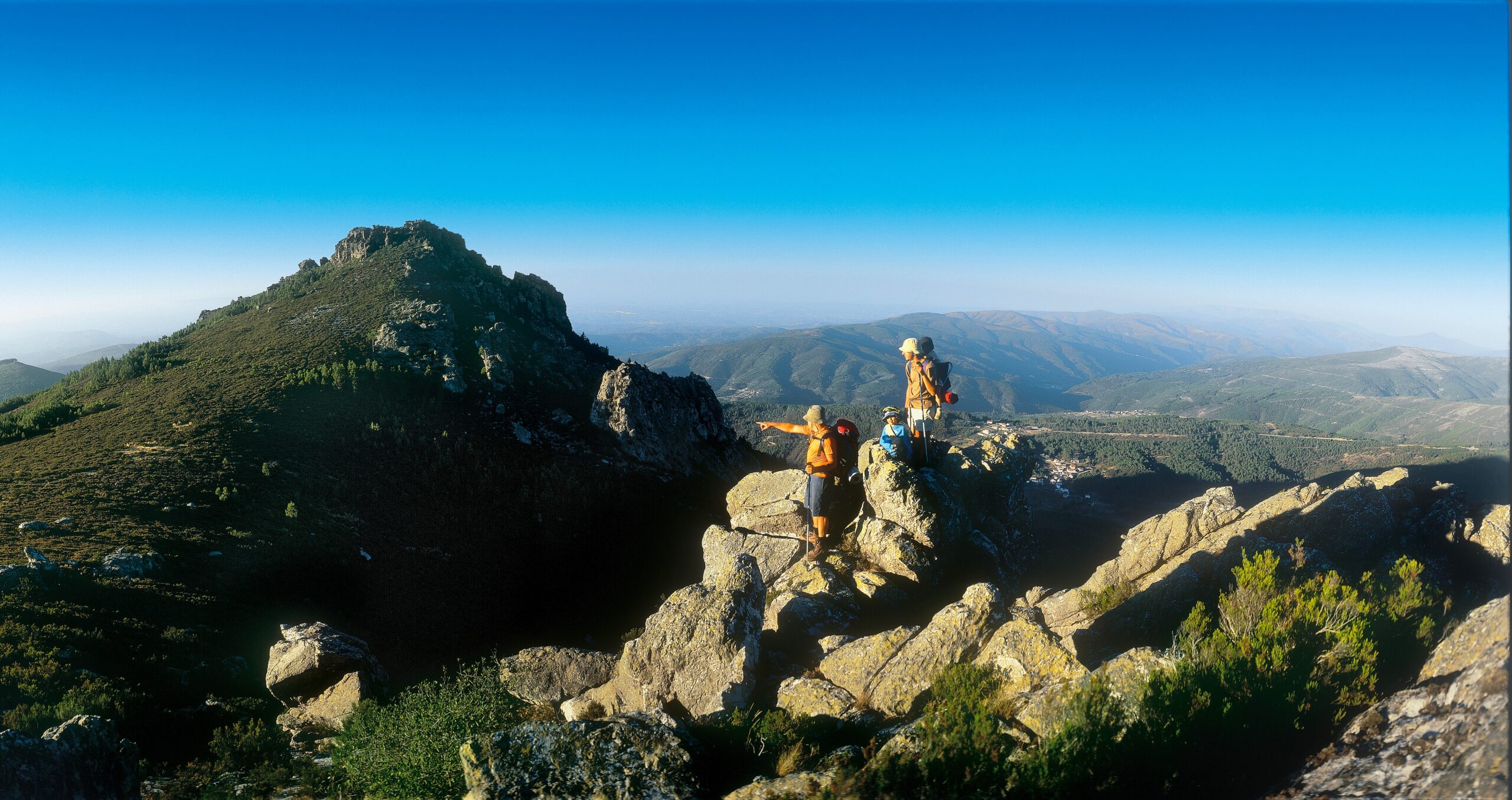
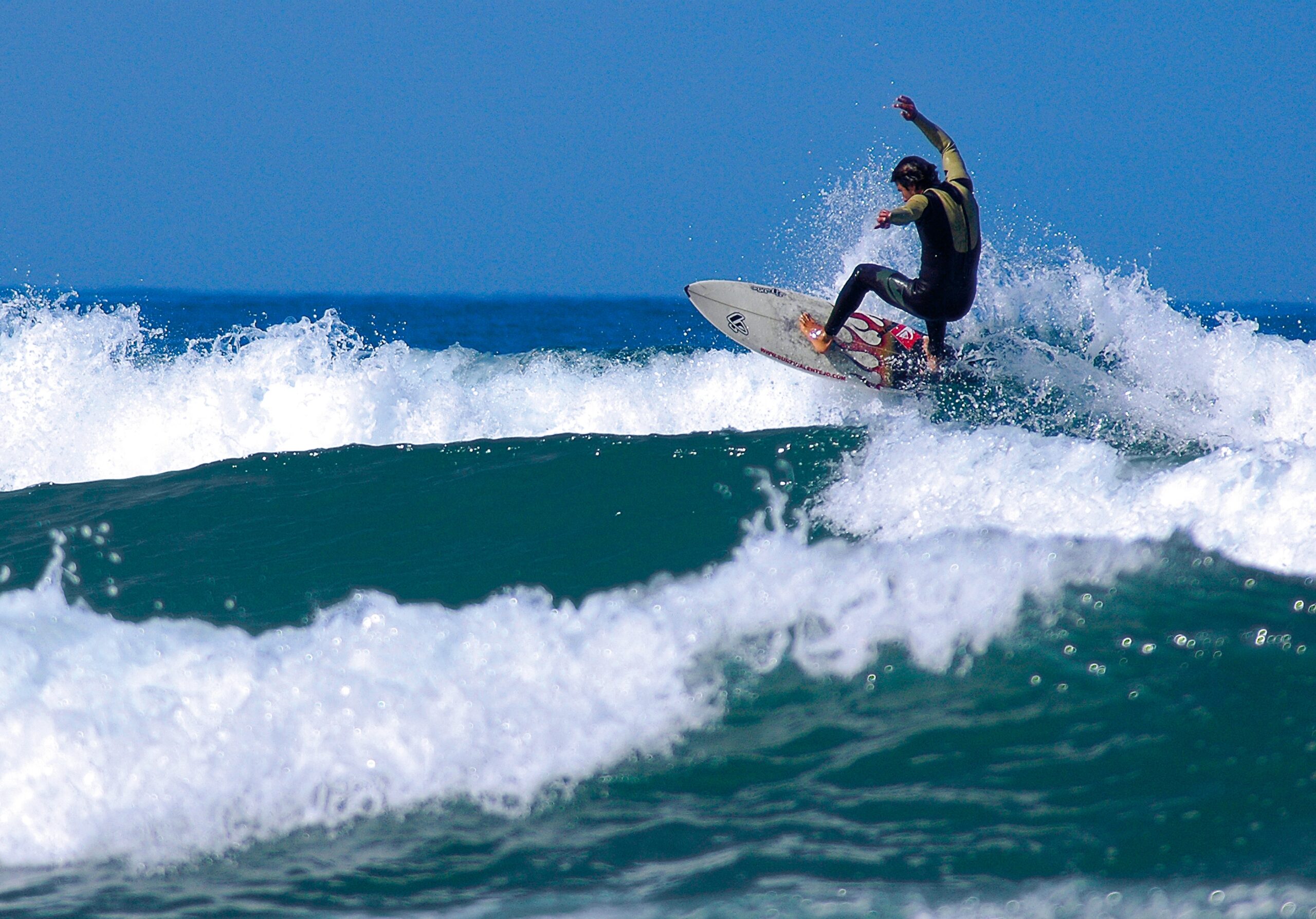
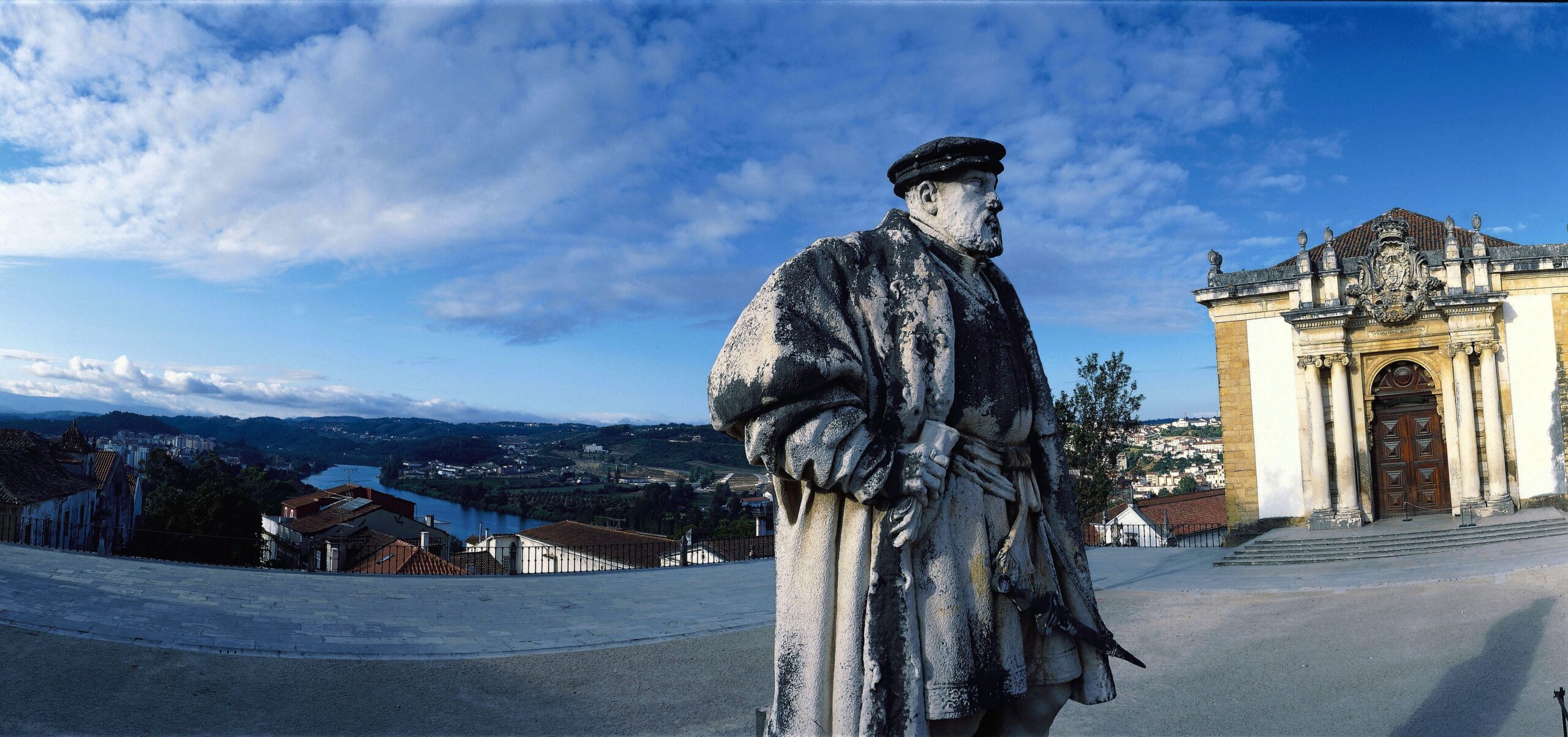
Rural Alentejo is a sparsely populated agricultural region of sweeping plains, cork forests and sleepy rural villages. Covering almost one-third of Portugal, its warm Mediterranean climate and pristine west coast beaches offer a welcome escape from the trappings of 21st century life. Inland, the regional capital Evora is a glorious celebration of Portugal’s 16th century golden era, and the hilltop castle towns of Castelo de Vide and Marvao are two of the best-preserved medieval settlements in Europe.
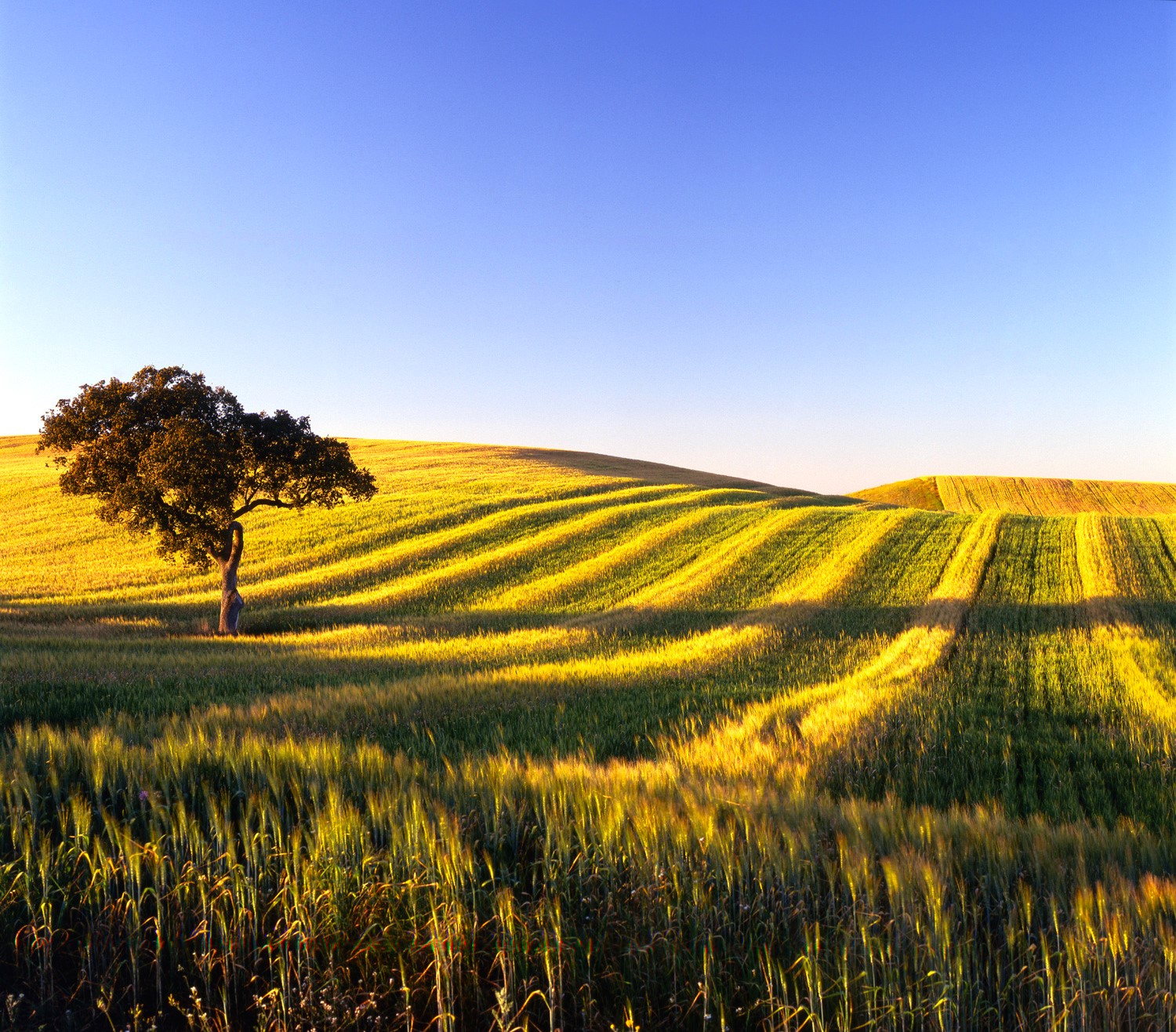
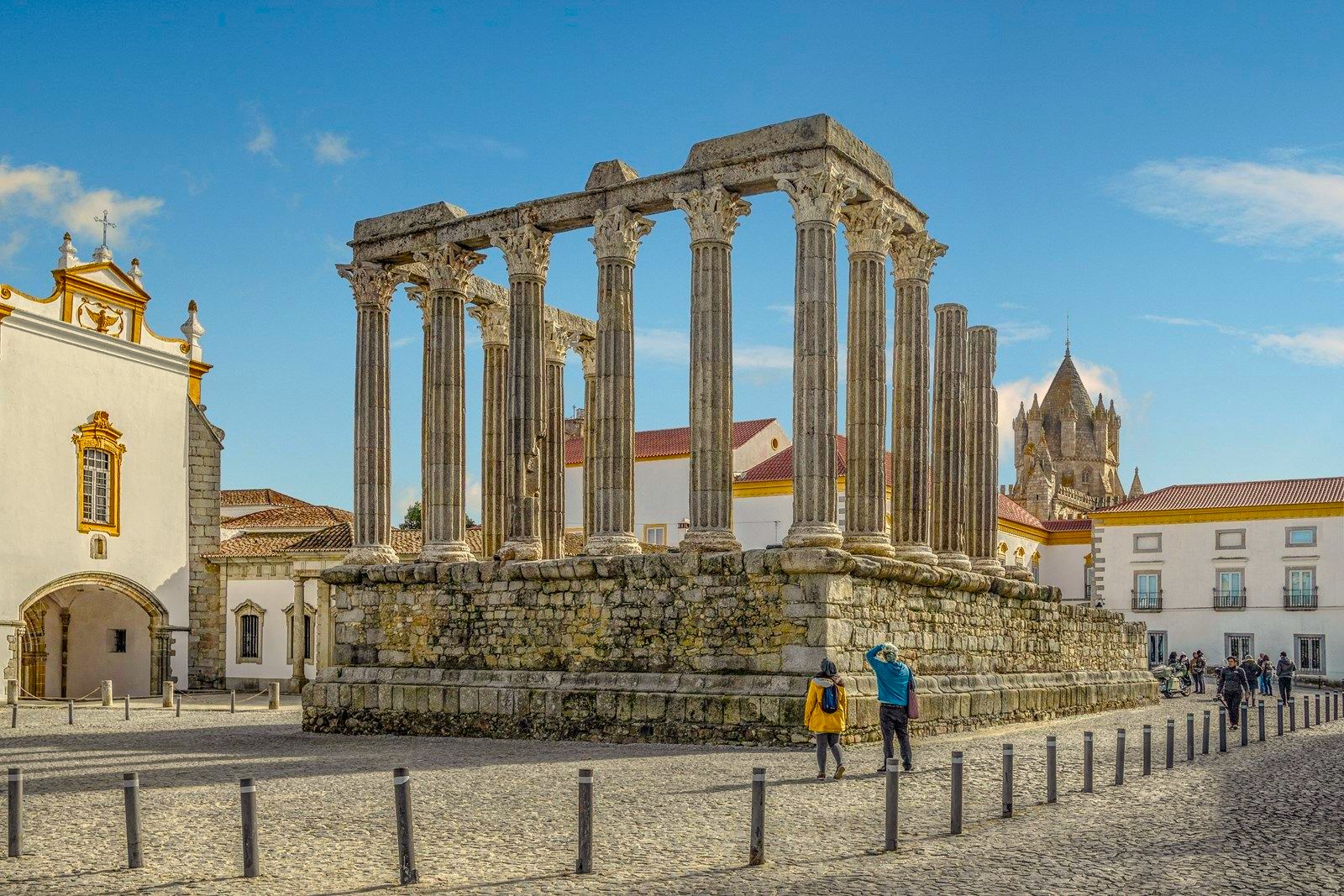
To the south, the Algarve region is bordered by over 200km of sun kissed beaches and rugged sea cliffs. It’s been a popular beach destination for UK travellers since the 1960s – we tend to forego the busy honeypot destinations like Vilamoura and Albufeira, opting for the quieter fishing towns of Lagos and Sagres. Lagos strikes a balance between modern-day tourism and protecting its heritage better than most, and its historic old town is a pretty maze of traditional whitewashed townhouses and ornate chapels. The limestone cliffs at nearby Ponta da Piedade are famous for their hidden caves and archways, and are best explored by boat or by kayak.
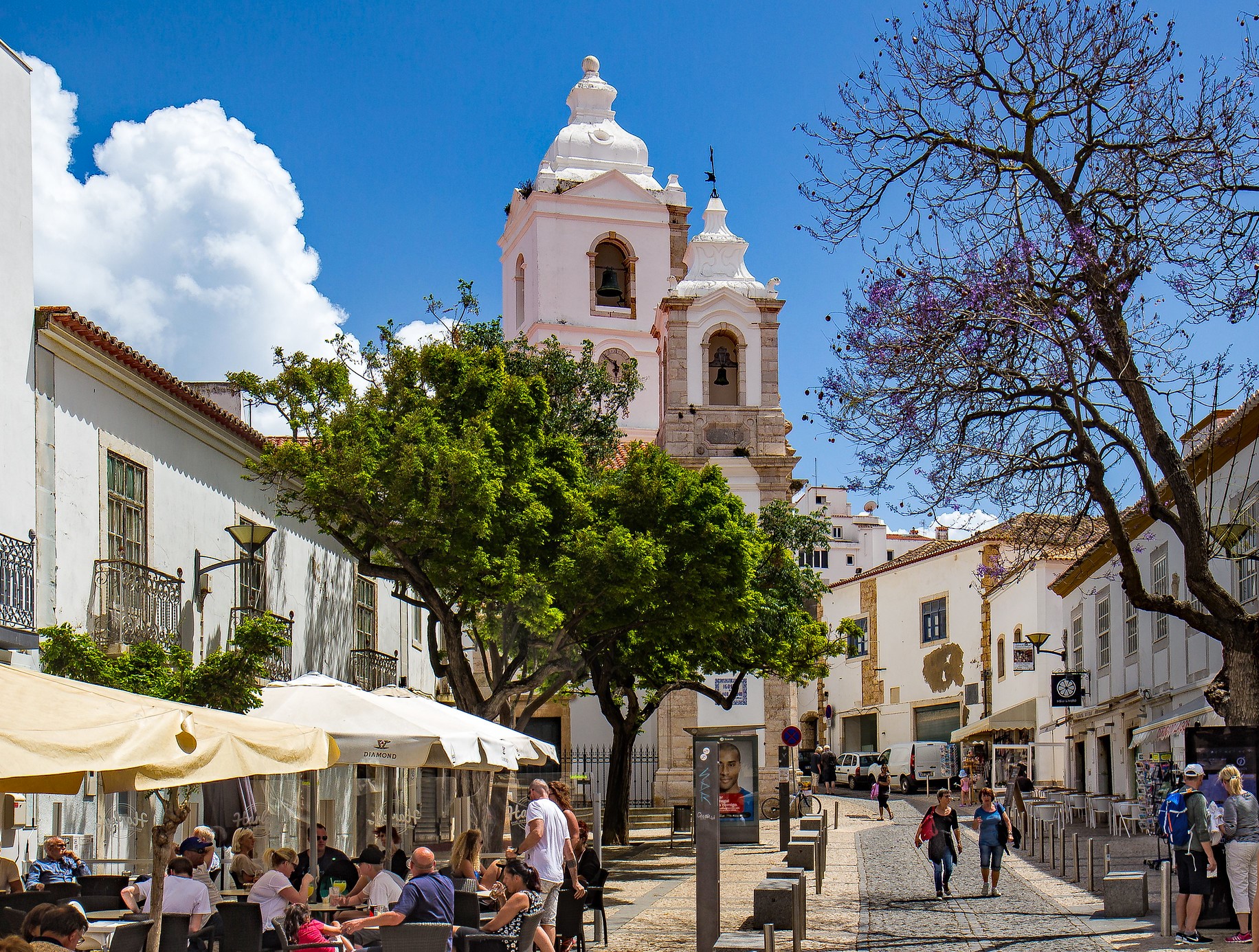
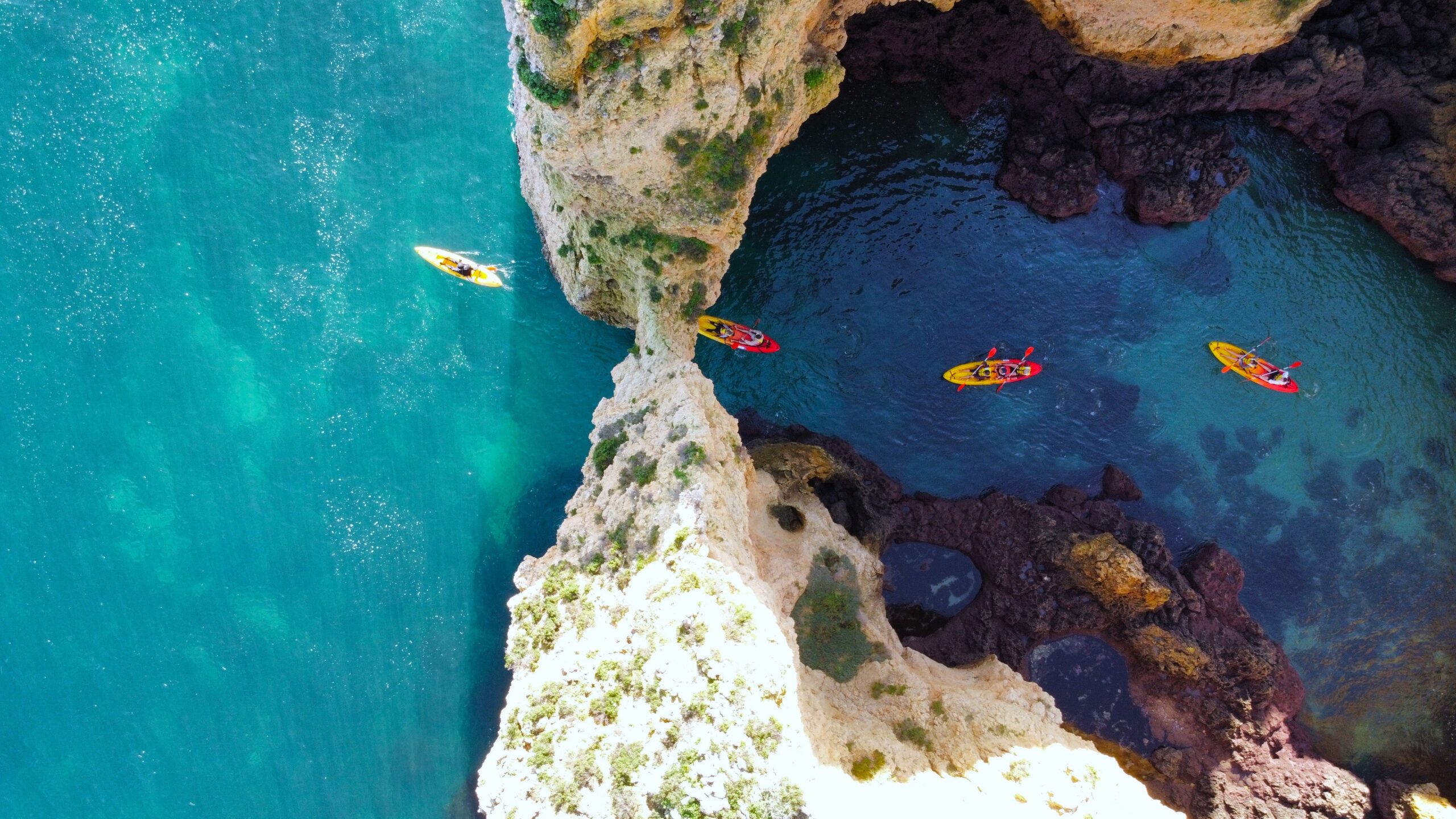
Sagres sits at the southwestern tip of Portugal, and has a ramshackle, surfer-atmosphere as the posh yachts of Vilamoura haven’t supplanted the locals’ brightly painted lobster boats just yet. The 15th century Fortaleza de Sagres is perched on the nearby Mareta headland, and Cabo de Sao Vicente, the end of mainland Europe, truly feels like the end of the world.
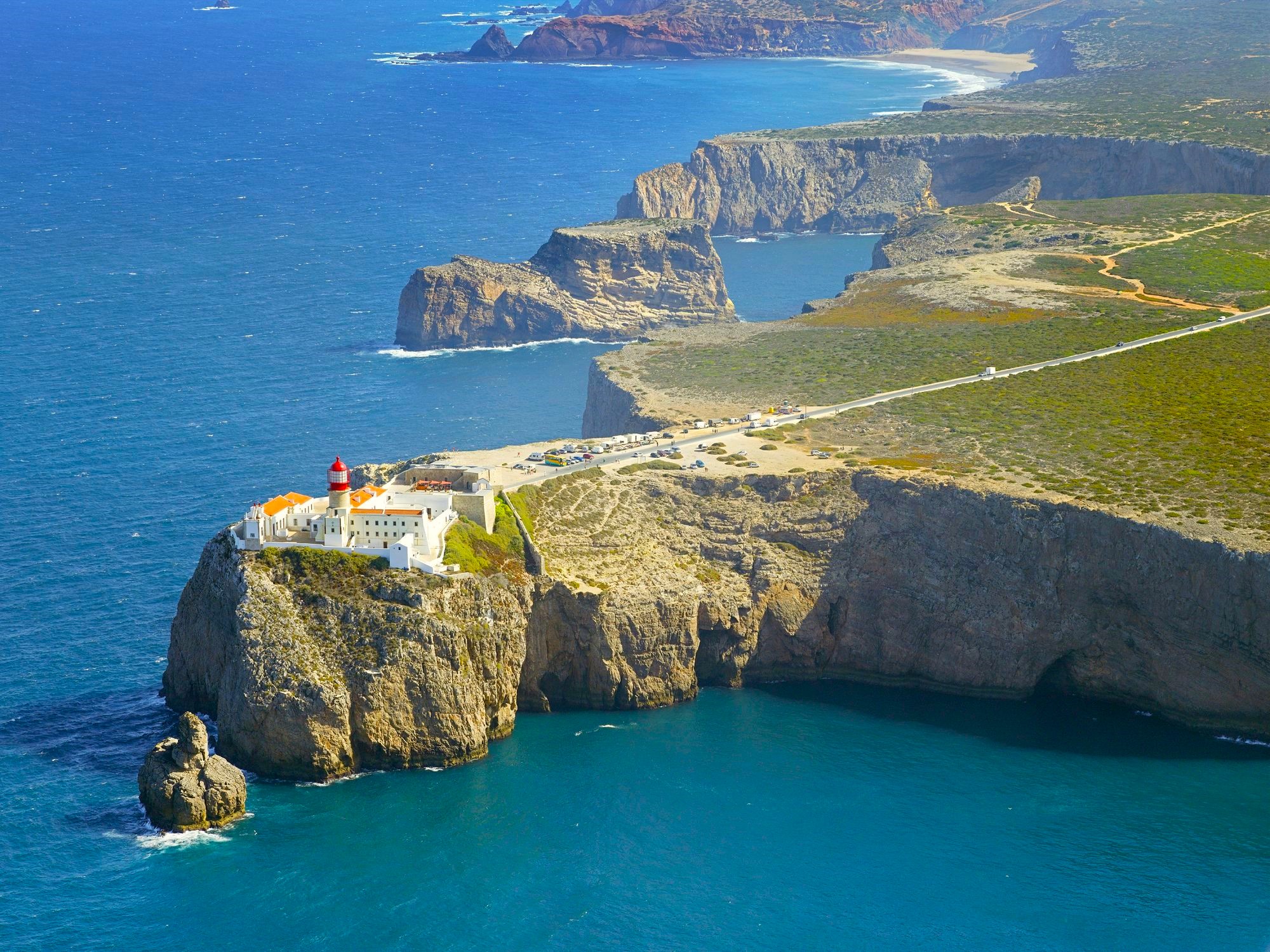
Learn more about Portugal on our dedicated Portugal Choice website.
City Tours
A guided tour can be an incredibly useful introduction the layout, cuisine and culture of an unfamiliar city. Our friendly and engaging guides bring the country’s long history to life, whilst giving you an insight into daily life in modern-day Portugal.
Tours often provide you with a list of new sights to see, restaurant recommendations, and an invaluable insight into the dos and don’ts of Portuguese etiquette. You’re also supporting the local economy, local businesses, museums and galleries, and your money helps to preserve many of Portugal’s most-historic buildings.
Hiking
Portugal’s wonderfully diverse range of landscapes make it the ideal destination for hiking holidays. The granite mountains of the Serra da Estrela are Portugal’s highest range (peaking at 1993 metres), and its high plateaus and deep river valleys are home to over 400km of waymarked trails and a wealth of wildlife: boars, otters, golden eagles, peregrine falcons and the elusive Iberian wolf.
Moving south, the Aldeias do Xisto Schist Villages are a collection of timeless, fairy tale hamlets spread across the peaks of Lousa, Acor and Muradal. Centuries of Portuguese history and tradition are preserved in the region’s hearty cuisine and its convivial B&Bs.
The jewel in the crown of Portugal’s walking network is the Rota Vicentina. This cross-region trail network was created in 2012 to help boost the local economies of southern Alentejo and the Algarve – its routes are easily adaptable according to the distance and type of hikes you enjoy, traversing remote cliffs and obscure beaches, with the wild Atlantic Ocean as a backdrop.
Food and Wine
Portuguese cuisine has experienced something of a renaissance in recent times. Once sidelined in favour of more well-known dishes from neighbouring Spain, Portugal’s locally sourced produce and regional wines have moved out of their Iberian neighbour’s shadow to take their rightful seat at the top table of European cuisine.
The capital Lisbon is where many of the country’s long-held culinary traditions are being challenged by a new generation of chefs, whose exciting and imaginative reinventions of classics such as caldo verde, ameijoas a bulhao pato and bolinhos de bacalhau are allowing the best of the country’s sensational produce to shine. Iberian pork is much-coveted, particularly in the Central and Alentejo regions whose farming heritage give its cuisine rustic, hearty slant. Its organic credentials are impeccable: roaming ancient cork forests and subsisting on a diet of acorns which impart a strong, nutty flavour to the meat.
As the western outpost of mainland Europe and with over 900km of coastline, seafood is the backbone of the country’s cuisine. Grilled sardines (sardinhas assadas) are deeply embedded in Portuguese culture and are often central to many religious celebrations, particularly around the Tejo River basin.
There are also thirty-one Denominacao de Origem Controlada regions across the country, producing over two-hundred varieties of wine. Dao, Estremadura, Bairrada, Portimao, Tavira – Portuguese vineyards are low yield and exports don’t compare to France or Italy, and to truly enjoy these wines, you have to be in Portugal.
Guided Tours
Taking on a whole new region of Portugal can be a daunting prospect: studying guidebooks and maps, researching must-see sites and trying to miss those lesser-known hidden gems. Our tours remove the stress of planning and optimise your time, without you feeling rushed or hurried. Our guides will always have a plan, but we prefer private, flexible tours where you’re not tied to a strict timetable.
If you’d like to get your hands dirty in Tras-os-Montes vineyards, with time to savour a glass of local Vino Verde, so be it. If you want to combine out-of-the-way family-run vineyards with the timeless grandeur of medieval Marvao, let us make the arrangements.
Our guides are a treasure trove of local knowledge, and their in-depth insight and passion will unveil Portugal’s extraordinary history, culture and cuisine.
Cycling
From the ancient vineyards of the Douro valley, via the windswept Alentejo plains and down to the seaside towns of the Algarve. The beauty of exploring Portugal on two wheels is in its slowness – unhurried travel allows you to immerse yourself in your surroundings and to explore the country’s rich cultural heritage and unique traditions.
Whether you’re looking for a self-guided, point-to-point cycle touring holiday, a couple of guided road rides during your family holiday, or if you prefer to be off-road, riding natural and man-made singletrack – whatever your preference, we have the bikes, routes and rides to suit all abilities.
Kayaking, SUPs and Surfing
Portugal offers an exciting range of water sports to suit every adventurer: from paddleboarding, kayaking and canoeing, to world-class surfing, kitesurfing and windsurfing,
Northern Portugal is home to many of the best spots for inland water sports – kayaking, canoeing and canyoning are popular thanks to an abundance of lakes, lagoons and waterfalls, and the UNESCO-protected Arouca Geopark is considered one of the best locations in the country for white water rafting. For a more tranquil experience, the calm waters of the Castelo de Bode reservoir are ideal for paddle-boarding, whilst the Aguieira reservoir is a popular destination for sailing and fresh-water fishing.
For would-be adrenalin junkies, the surf schools at Espinho are perfect for surfing newbies. If you’re a seasoned pro, Nazare and Peniche are blessed with year-around consistent swells and a vibrant surf culture. With its exposed location on the far southwestern tip of the Algarve, Sagres has been a mecca for water sports enthusiasts for over fifty years. Its energetic waves and laid-back atmosphere attract old-school surfers and kiteboarders from across the world.
In our experience these are the best times of the year to visit Portugal:
Jan
Feb
Mar
Apr
May
Jun
Jul
Aug
Sep
Oct
Nov
Dec
Portugal’s mild in the Autumn and Winter, and hot from around May through to November. It can be very hot (+40⁰C) in the Summer months.
Portugal is a timeless country of charming medieval towns, ancient vineyards and secluded beaches.

As one of Europe’s oldest countries, Portugal has stood guard over the western fringes of continental Europe for over three thousand years. It’s dynamic capital Lisbon is a fascinating mix of old and new: from the jumbled medieval alleyways of Alfama and the ornate 16th century Manueline monuments in Belem, to the grandiose Praca do Comercio, the Rua Augusta Triumphal Arch and the impressive Ponte 25 de Abril suspension bridge.



History comes alive in the ancient northern cities of Guimaraes and Braga, whilst the regional capital Porto offers visitors an irresistible mix of 18th century elegance and medieval chaos. Twin city Vila Nova de Gaia is famous for its port houses which line the southern bank of the grand Douro River, and the iconic Ponte Luiz I bridge connects these two great cities.

Central Portugal begins where Porto ends. Its natural landscapes are incredibly diverse – to the east, the Serra da Estrela mountains are only just being discovered by European hikers, whilst in the west, the beaches of Figueira da Foz and Nazare attract the great and the good of the surfing world with their record-breaking winter waves. The art nouveau architecture and colourful canal boats of Aveiro are famous across Portugal, and the nearby university city of Coimbra and the Templar city of Tomar are home to many of the country’s best-preserved architectural treasures.



Rural Alentejo is a sparsely populated agricultural region of sweeping plains, cork forests and sleepy rural villages. Covering almost one-third of Portugal, its warm Mediterranean climate and pristine west coast beaches offer a welcome escape from the trappings of 21st century life. Inland, the regional capital Evora is a glorious celebration of Portugal’s 16th century golden era, and the hilltop castle towns of Castelo de Vide and Marvao are two of the best-preserved medieval settlements in Europe.


To the south, the Algarve region is bordered by over 200km of sun kissed beaches and rugged sea cliffs. It’s been a popular beach destination for UK travellers since the 1960s – we tend to forego the busy honeypot destinations like Vilamoura and Albufeira, opting for the quieter fishing towns of Lagos and Sagres. Lagos strikes a balance between modern-day tourism and protecting its heritage better than most, and its historic old town is a pretty maze of traditional whitewashed townhouses and ornate chapels. The limestone cliffs at nearby Ponta da Piedade are famous for their hidden caves and archways, and are best explored by boat or by kayak.


Sagres sits at the southwestern tip of Portugal, and has a ramshackle, surfer-atmosphere as the posh yachts of Vilamoura haven’t supplanted the locals’ brightly painted lobster boats just yet. The 15th century Fortaleza de Sagres is perched on the nearby Mareta headland, and Cabo de Sao Vicente, the end of mainland Europe, truly feels like the end of the world.

Learn more about Portugal on our dedicated Portugal Choice website.
City Tours
A guided tour can be an incredibly useful introduction the layout, cuisine and culture of an unfamiliar city. Our friendly and engaging guides bring the country’s long history to life, whilst giving you an insight into daily life in modern-day Portugal.
Tours often provide you with a list of new sights to see, restaurant recommendations, and an invaluable insight into the dos and don’ts of Portuguese etiquette. You’re also supporting the local economy, local businesses, museums and galleries, and your money helps to preserve many of Portugal’s most-historic buildings.
Hiking
Portugal’s wonderfully diverse range of landscapes make it the ideal destination for hiking holidays. The granite mountains of the Serra da Estrela are Portugal’s highest range (peaking at 1993 metres), and its high plateaus and deep river valleys are home to over 400km of waymarked trails and a wealth of wildlife: boars, otters, golden eagles, peregrine falcons and the elusive Iberian wolf.
Moving south, the Aldeias do Xisto Schist Villages are a collection of timeless, fairy tale hamlets spread across the peaks of Lousa, Acor and Muradal. Centuries of Portuguese history and tradition are preserved in the region’s hearty cuisine and its convivial B&Bs.
The jewel in the crown of Portugal’s walking network is the Rota Vicentina. This cross-region trail network was created in 2012 to help boost the local economies of southern Alentejo and the Algarve – its routes are easily adaptable according to the distance and type of hikes you enjoy, traversing remote cliffs and obscure beaches, with the wild Atlantic Ocean as a backdrop.
Food and Wine
Portuguese cuisine has experienced something of a renaissance in recent times. Once sidelined in favour of more well-known dishes from neighbouring Spain, Portugal’s locally sourced produce and regional wines have moved out of their Iberian neighbour’s shadow to take their rightful seat at the top table of European cuisine.
The capital Lisbon is where many of the country’s long-held culinary traditions are being challenged by a new generation of chefs, whose exciting and imaginative reinventions of classics such as caldo verde, ameijoas a bulhao pato and bolinhos de bacalhau are allowing the best of the country’s sensational produce to shine. Iberian pork is much-coveted, particularly in the Central and Alentejo regions whose farming heritage give its cuisine rustic, hearty slant. Its organic credentials are impeccable: roaming ancient cork forests and subsisting on a diet of acorns which impart a strong, nutty flavour to the meat.
As the western outpost of mainland Europe and with over 900km of coastline, seafood is the backbone of the country’s cuisine. Grilled sardines (sardinhas assadas) are deeply embedded in Portuguese culture and are often central to many religious celebrations, particularly around the Tejo River basin.
There are also thirty-one Denominacao de Origem Controlada regions across the country, producing over two-hundred varieties of wine. Dao, Estremadura, Bairrada, Portimao, Tavira – Portuguese vineyards are low yield and exports don’t compare to France or Italy, and to truly enjoy these wines, you have to be in Portugal.
Guided Tours
Taking on a whole new region of Portugal can be a daunting prospect: studying guidebooks and maps, researching must-see sites and trying to miss those lesser-known hidden gems. Our tours remove the stress of planning and optimise your time, without you feeling rushed or hurried. Our guides will always have a plan, but we prefer private, flexible tours where you’re not tied to a strict timetable.
If you’d like to get your hands dirty in Tras-os-Montes vineyards, with time to savour a glass of local Vino Verde, so be it. If you want to combine out-of-the-way family-run vineyards with the timeless grandeur of medieval Marvao, let us make the arrangements.
Our guides are a treasure trove of local knowledge, and their in-depth insight and passion will unveil Portugal’s extraordinary history, culture and cuisine.
Cycling
From the ancient vineyards of the Douro valley, via the windswept Alentejo plains and down to the seaside towns of the Algarve. The beauty of exploring Portugal on two wheels is in its slowness – unhurried travel allows you to immerse yourself in your surroundings and to explore the country’s rich cultural heritage and unique traditions.
Whether you’re looking for a self-guided, point-to-point cycle touring holiday, a couple of guided road rides during your family holiday, or if you prefer to be off-road, riding natural and man-made singletrack – whatever your preference, we have the bikes, routes and rides to suit all abilities.
Kayaking, SUPs and Surfing
Portugal offers an exciting range of water sports to suit every adventurer: from paddleboarding, kayaking and canoeing, to world-class surfing, kitesurfing and windsurfing,
Northern Portugal is home to many of the best spots for inland water sports – kayaking, canoeing and canyoning are popular thanks to an abundance of lakes, lagoons and waterfalls, and the UNESCO-protected Arouca Geopark is considered one of the best locations in the country for white water rafting. For a more tranquil experience, the calm waters of the Castelo de Bode reservoir are ideal for paddle-boarding, whilst the Aguieira reservoir is a popular destination for sailing and fresh-water fishing.
For would-be adrenalin junkies, the surf schools at Espinho are perfect for surfing newbies. If you’re a seasoned pro, Nazare and Peniche are blessed with year-around consistent swells and a vibrant surf culture. With its exposed location on the far southwestern tip of the Algarve, Sagres has been a mecca for water sports enthusiasts for over fifty years. Its energetic waves and laid-back atmosphere attract old-school surfers and kiteboarders from across the world.
In our experience these are the best times of the year to visit Portugal:
Jan
Feb
Mar
Apr
May
Jun
Jul
Aug
Sep
Oct
Nov
Dec
Portugal’s mild in the Autumn and Winter, and hot from around May through to November. It can be very hot (+40⁰C) in the Summer months.

